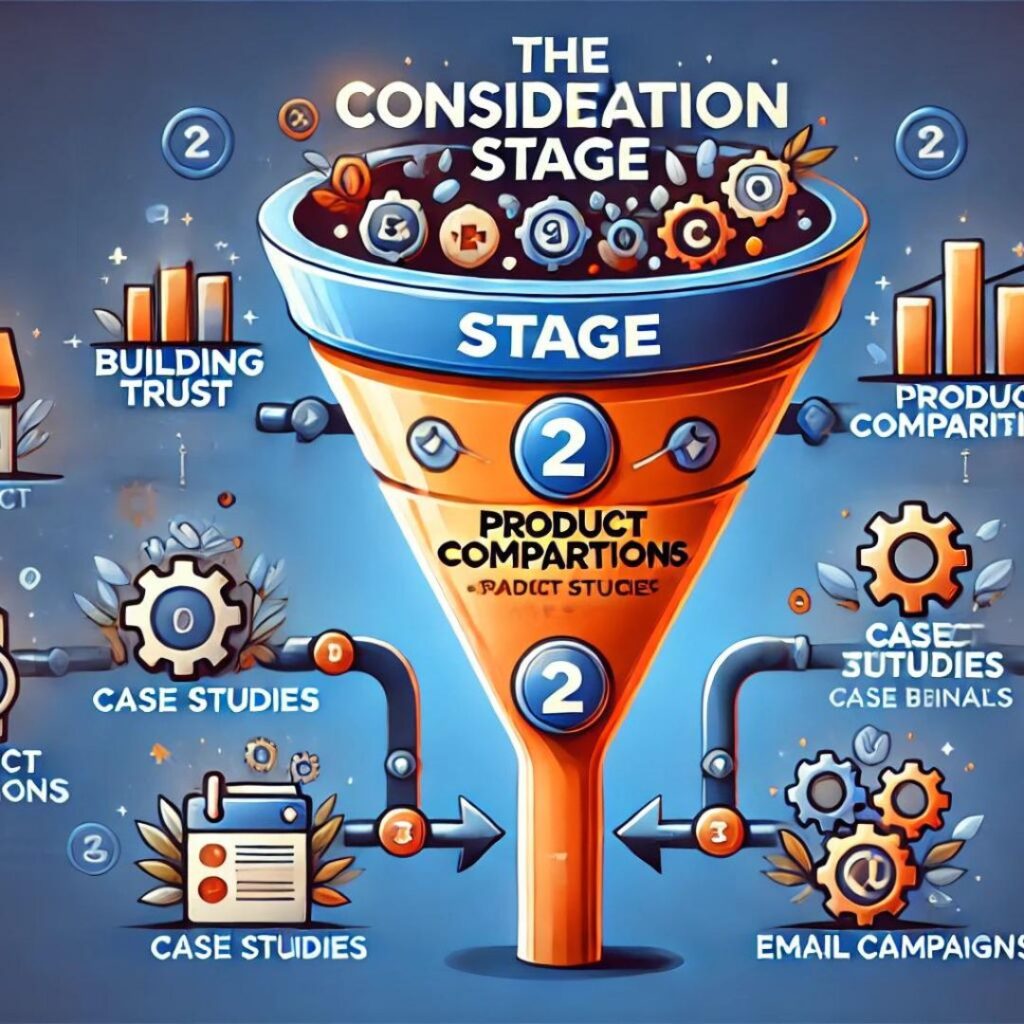In the world of marketing, the customer journey is often visualized as a funnel, guiding potential customers from awareness to purchase. The consideration stage, the second phase of this funnel, is crucial for converting interest into intent. This article explores the importance of the consideration stage, what it entails, and how marketers can effectively engage customers during this phase.
What is the Consideration Stage?
The consideration stage is the second phase of the marketing funnel, where potential customers have moved beyond initial awareness and are actively seeking more detailed information about a product or service. At this point, they are evaluating different options, comparing features, prices, and benefits to make an informed decision.
During the consideration stage, the goal for marketers is to provide valuable, in-depth information that addresses the specific needs and concerns of potential customers. This stage is critical for building trust and demonstrating how your product or service can meet their needs better than the competition.
Importance of the Consideration Stage
- Building Trust and Credibility:
- Providing detailed and relevant information helps establish your brand as a trustworthy and credible source. This builds confidence in potential customers, making them more likely to consider your offering seriously.
- Differentiation:
- The consideration stage offers an opportunity to highlight what sets your product or service apart from competitors. Clear communication of unique selling points (USPs) can make a significant difference in influencing the customer’s decision.
- Nurturing Leads:
- Effective engagement during the consideration stage can nurture leads and move them closer to the decision stage. This involves addressing any objections and providing the necessary information to facilitate a purchase decision.
Strategies for the Consideration Stage
To effectively engage customers during the consideration stage, marketers should employ a variety of strategies and tactics:
- Content Marketing:
- Product Comparisons: Create comparison charts and detailed guides that highlight the differences between your product and competitors. This helps potential customers see the unique benefits of your offering.
- Case Studies and Testimonials: Showcase real-life examples of how your product has solved problems for other customers. Testimonials and case studies provide social proof and build credibility.
- In-Depth Articles and Blogs: Publish articles that delve into the specifics of your product, its features, and its benefits. Educational content that addresses common questions and concerns can be highly effective.
- Webinars and Demos:
- Hosting webinars and live demos can provide a hands-on experience for potential customers. These interactive sessions allow customers to see the product in action and ask questions in real-time.
- Email Marketing:
- Nurture Campaigns: Develop email sequences that provide detailed information, case studies, and product updates. Personalized emails that address the specific interests and pain points of leads can keep them engaged.
- Follow-Up Emails: After an initial interaction, follow up with more information tailored to the prospect’s needs. This shows attentiveness and commitment to helping them make an informed decision.
- Social Proof:
- Leverage reviews, ratings, and user-generated content to build trust. Highlighting positive feedback from existing customers can reassure potential buyers of the product’s value.
- Interactive Content:
- Utilize interactive tools such as calculators, quizzes, and configurators that allow potential customers to customize and explore your product according to their needs. This interactive approach can make the information-gathering process more engaging and personalized.
Example of Consideration Stage in Practice
Consider a software company promoting a project management tool. During the consideration stage, the company might offer:
- Product Comparisons: A detailed comparison guide showing how their tool stacks up against other popular project management tools in terms of features, pricing, and user reviews.
- Case Studies: Success stories from businesses that have successfully implemented the tool to streamline their project management processes.
- Webinars: Live webinars demonstrating key features of the tool and how it can solve specific project management challenges.
- Email Campaigns: A series of emails providing deeper insights into specific features, integration capabilities, and user testimonials.
- Interactive Demos: A free trial or interactive demo allowing potential customers to experience the tool firsthand.
The consideration stage is a pivotal point in the marketing funnel where potential customers seek detailed information to make an informed choice. By providing comprehensive, relevant, and engaging content, marketers can build trust, highlight differentiation, and nurture leads towards the decision stage. Employing a mix of content marketing, webinars, email campaigns, social proof, and interactive tools can effectively guide potential customers through this critical phase of the customer journey.


